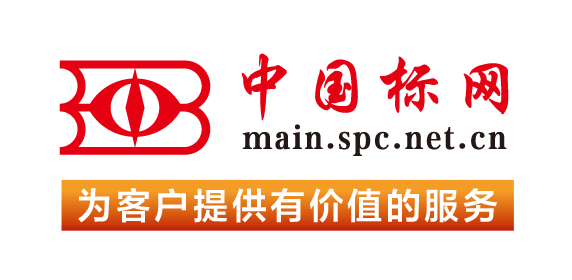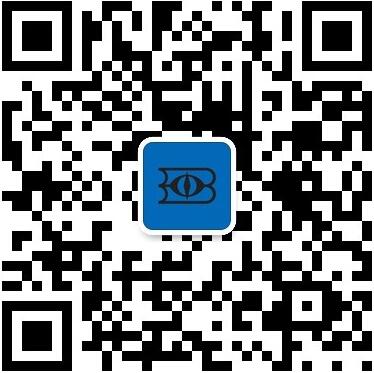【国外标准】 Standard Test Method for Autogenous Strain of Cement Paste and Mortar
本网站 发布时间:
2024-02-28
开通会员免费在线看70000余条国内标准,赠送文本下载次数,单本最低仅合13.3元!还可享标准出版进度查询、定制跟踪推送、标准查新等超多特权!
查看详情>>
适用范围:
5.1 Autogenous strain is the self-created bulk strain of cement paste, mortar, or concrete during hardening at constant temperature. In conventional concrete, autogenous shrinkage strain is generally negligible, but in concrete with low water-cementitious materials ratio (w/cm) or with silica fume it may be considerable (1).5 Restraint of the autogenous strain by aggregates or adjoining structural members may result in formation of micro and macro cracks that impair strength, durability and aesthetics. Cracks may also be a problem with regard to hygienic cleaning of surfaces.5.2 An accurate measurement of the autogenous strain of cementitious mixtures with low w/cm is important for evaluating the risk of early-age cracking of concrete structures. Measurements of autogenous strain have been carried out using either volumetric or linear methods. Both methods may show evidence of significant artifacts (1); therefore, results of the two methods may disagree considerably if not carried out properly.5.3 A sealed, flexible corrugated mold system (2) combines the advantages of linear and volumetric measurement of autogenous strain, while avoiding most of their disadvantages. The mold effectively prevents moisture loss and minimizes restraint to volume change during hardening. Moreover, results obtained with the corrugated mold system agree with those from the volumetric method, once some artifacts, in particular water absorption through the membrane used to contain the test specimen, have been eliminated in the latter (3,4). The corrugated mold system is easier to use and shows better repeatability than the volumetric technique (3,4). Measurements with the corrugated mold system are in good agreement with unrestrained length change measurements obtained using Test Method C157/C157M with sealed specimens (5); however, Test Method C157/C157M does not allow measurement of the shrinkage occurring before 24 h (5).5.4 This test method can be used to evaluate the effects of cementitious materials, admixtures, and mixture proportions on autogenous shrinkage strain of paste or mortar specimens.5.5 The autogenous shrinkage strain of mortar specimens will be less than that of paste specimens for the same w/cm. The autogenous shrinkage strain of concrete will be less than that of mortar for the same w/cm. The nominal maximum aggregate size for mortar used in this test method is 4.75 mm.1.1 This test method measures the bulk strain of a sealed cement paste or mortar specimen, including those containing admixtures, various supplementary cementitious materials (SCM), and other fine materials, at constant temperature and not subjected to external forces, from the time of final setting until a specified age. This strain is known as autogenous strain. Autogenous strain is most significant in concrete with low water-cementitious materials ratio (w/cm) (See Note 1).NOTE 1: A low water-cementitious materials ratio (w/cm) can be considered to be a water to cement ratio of 0.40 or lower for this test.1.2 The values stated in SI units are to be regarded as standard. No other units of measurement are included in this standard.1.3 The text of this standard references notes and footnotes that provide explanatory material. These notes and footnotes (excluding those in tables and figures) shall not be considered as requirements of this standard.1.4 This standard does not purport to address all of the safety concerns, if any, associated with its use. It is the responsibility of the user of this standard to establish appropriate safety, health, and environmental practices and determine the applicability of regulatory limitations prior to use. (Warning—Fresh hydraulic cementitious mixtures are caustic and may cause chemical burns to skin and tissue upon prolonged exposure.2)1.5 This international standard was developed in accordance with internationally recognized principles on standardization established in the Decision on Principles for the Development of International Standards, Guides and Recommendations issued by the World Trade Organization Technical Barriers to Trade (TBT) Committee.
标准号:
ASTM C1698-19
标准名称:
Standard Test Method for Autogenous Strain of Cement Paste and Mortar
英文名称:
Standard Test Method for Autogenous Strain of Cement Paste and Mortar标准状态:
Active-
发布日期:
-
实施日期:
出版语种:
- 推荐标准
- ASTM E1160-13(2021) Standard Guide for On-Site Inspection and Verification of Operation of Solar Domestic Hot Water Systems
- ASTM E1162-11(2019) Standard Practice for Reporting Sputter Depth Profile Data in Secondary Ion Mass Spectrometry (SIMS)
- ASTM E1164-23 Standard Practice for Obtaining Spectrometric Data for Object-Color Evaluation
- ASTM E1173-23 Standard Practice for Evaluation of Preoperative, Precatheterization, or Preinjection Skin Preparations
- ASTM E1174-21 Standard Test Method for Evaluation of the Effectiveness of Healthcare Personnel Handwash Formulations
- ASTM E1179-13(2019) Standard Specification for Sound Sources Used for Testing Open Office Components and Systems
- ASTM E1180-08(2021) Standard Practice for Preparing Sulfur Prints for Macrostructural Evaluation
- ASTM E1198-19 Standard Practice for Sampling Zooplankton with Pumps
- ASTM E1199-19 Standard Practice for Sampling Zooplankton with a Clarke-Bumpus Plankton Sampler
- ASTM E1208-21 Standard Practice for Fluorescent Liquid Penetrant Testing Using the Lipophilic Post-Emulsification Process
- ASTM E1211/E1211M-17 Standard Practice for Leak Detection and Location Using Surface-Mounted Acoustic Emission Sensors
- ASTM E1213-14(2022) Standard Practice for Minimum Resolvable Temperature Difference for Thermal Imaging Systems
- ASTM E1218-21 Standard Guide for Conducting Static Toxicity Tests with Microalgae
- ASTM E1219-21 Standard Practice for Fluorescent Liquid Penetrant Testing Using the Solvent-Removable Process
- ASTM E122-17(2022) Standard Practice for Calculating Sample Size to Estimate, With Specified Precision, the Average for a Characteristic of a Lot or Process
 购物车
购物车 400-168-0010
400-168-0010













